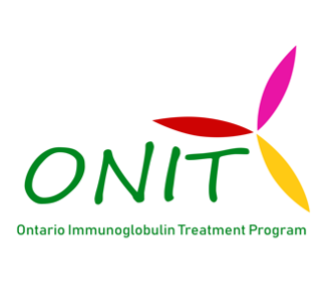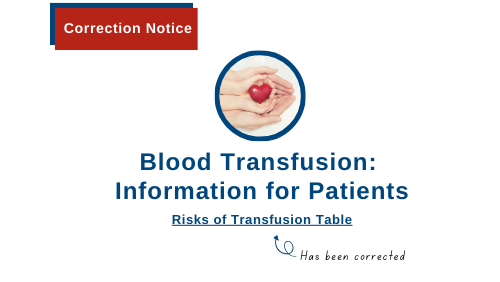ONIT Program Update

Sarah Shehadeh1, Stephen Betschel2, Susan Waserman3, Danny Hill4, Donald William Cameron1,5, Juthaporn Cowan1,5*
1The Ottawa Hospital Research Institute, Ottawa, Ontario
2Department of Medicine, University of Toronto, Toronto, Ontario
3Deparmtnet of Medicine, McMaster University, Hamilton, Ontario
4Hematology Clinic, Ambulatory Care Unit, Sault Area Hospital, Sault Ste. Marie, Ontario
5Department of Medicine, University of Ottawa, Ottawa, Ontario
*Corresponding author
The Ontario Immunoglobulin Treatment (ONIT) Program is an Ontario government-approved and funded initiative designed to facilitate and manage home-based self-administered subcutaneous immunoglobulin (SCIG) treatment. The program provides care through hospital-embedded outpatient clinics, with nursing coordination, education, and follow-up, and medical oversight for indication, dosage titration, health outcomes and therapeutic re-evaluation.
We first introduced the program for ORBCoN members in the newsletter published in May 2020. The program was fully implemented at three centers (The Ottawa Hospital, St. Michael’s Hospital and McMaster University Medical Center) by the end of 2020. We also created a patient-consented case registry to collect data at the point-of-care. At present, there are close to one thousand patients enrolled in the registry, reflecting the program’s significant reach and impact. This database plays a crucial role in facilitating research, quality improvement initiatives, standardize care, and ensuring the continued effectiveness and safety of immunoglobulin therapy. Through the ONIT registry, we published an article on the clinical outcomes of immunoglobulin therapy in individuals with secondary antibody deficiency (PLoS One. 2023 Nov 16;18(11):e0294408. doi: 10.1371/journal.pone.0294408). We reported that immunoglobulin treatment reduced the average annual number of infections by 82.6%, emergency room (ER) visits by 84.6%, and hospitalizations by 83.3%. Overall, 84.6% of patients reported their health as better compared to before immunoglobulin treatment. Among those patients who switched from intravenous immunoglobulin (IVIG) to SCIG, 33.3% reported their health as the same, and 62.9% reported their health as better. This study demonstrated that immunoglobulin treatment significantly improved clinical outcomes and patient-reported general health state in patients with secondary antibody deficiency. The study also further supports the use of SCIG in patients with secondary antibody deficiency.
Additionally, we have developed an internal dashboard tailored for individuals involved in the program. Discussions are underway regarding the potential external availability of this dashboard, which would provide valuable insights and transparency into program operations and patient outcomes. Since 2023, the program has expanded to include Sault-area Hospital as the fourth center. We are evaluating the program expansion implementation process with the aim to enhance effective future program implementation to other sites through the continual support from the Ministry of Health.
📣 Update Alert
Blood Transfusion: Information for Patients
Risks of Transfusion Table has been corrected in the Blood Transfusion: Information for Patients document. Please discard and replace any previous versions you may have with this version

Featured Resources
Transfusionists Talk

Bedside Audit of Blood Administration Version 2

Upcoming Events
CSTM 2024

U of T

April 18, 2024 @12pm-1pm
Exploring the relevance of race and ethnicity in transfusion medicine by Sunitha Vege
Subscribe to U of T Transfusion Medicine Rounds mailing list to get registration details